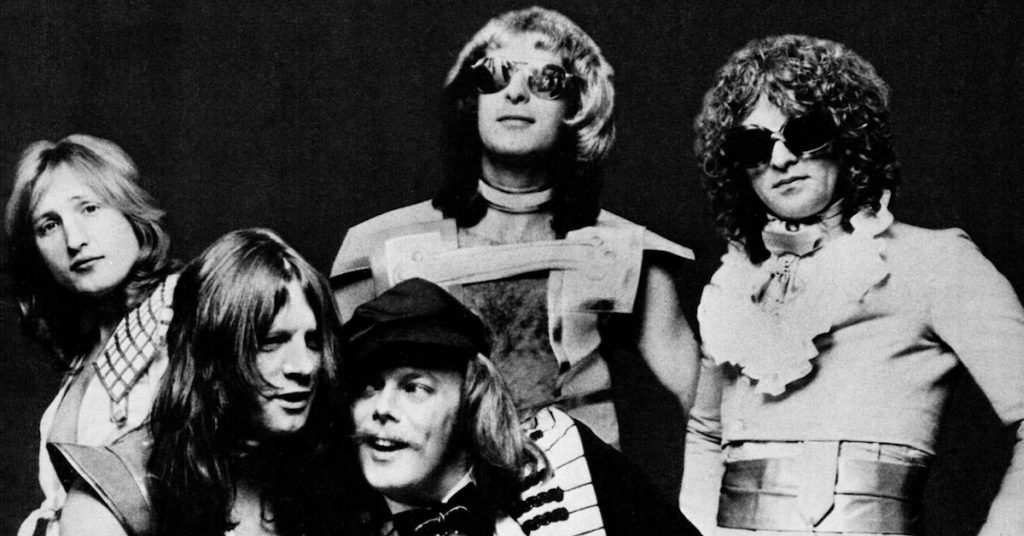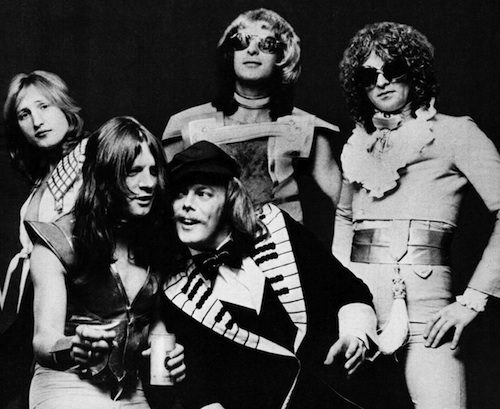
Pete Overend Watts, the original bassist for the British ’70s band Mott the Hoople, died on Jan. 22, 2017. The cause was throat cancer. Watts was 69.
Watts’ passing occurred just over a year after that of Mott drummer Terence Dale “Buffin” Griffin, who died Jan. 17, 2016.
Peter Overend Watts—Overend was his real middle name, traceable to an ancestor—was born May 13, 1947, in Yardley, Birmingham, England. While living in Herefordshire, he took up guitar but by 1965 he had switched over to the electric bass. In 1966, Watts, vocalist Stan Tippins and guitarist Mick Ralphs formed a new band called the Doc Thomas Group. Griffin and organist Verden Allen soon joined them and they worked under a number of different names, including Silence. That lineup came to the attention of record label executive Guy Stevens, who insisted on a new singer. Ian Hunter was recruited (it was also Stevens who suggested that Watts drop Pete and work professionally as Overend Watts).

In 1969 the band, christened Mott the Hoople after the title of a recent novel, signed with Island Records and cut its debut album. The band enjoyed only moderate success until it aligned with the nascent glam movement in the U.K. When ardent fan David Bowie offered them his composition “All the Young Dudes,” in 1972, Mott the Hoople grabbed it and rode it to major success in Britain, earning a sizable following in the U.S. as well. (It was Watts who went to Bowie on his own when Mott was considering breaking up at the time. Bowie initially offered them “Suffragette City” and then “All the Young Dudes.”)
A series of lineup changes and other problems led to the 1974 breakup of Mott, with Hunter forming a duo with Bowie’s guitarist Mick Ronson and then going on to a solo career.
Watts, Griffin and keyboardist Morgan Fisher kept Mott—using that abbreviated moniker and as British Lions (they recorded two albums under that name)—alive with numerous musicians coming and going up until 1980, when they finally packed it in.
Watts largely retreated from the music business in his post-Mott years, although he did some production work.
In 2009, Watts and the other original members of Mott the Hoople performed a series of five 40th anniversary concerts in London. Further reunion gigs followed in 2013.
Watts was also into cross-country walking and wrote a book titled The Man Who Hated Walking.
Hunter posted his reaction to Watts’ death on Twitter: “Oh dear. My extremely eccentric, lovely mate – Peter Overend Watts – has left the building. Devastated.”
And former Mott the Hoople member Verden Allen wrote, “Feeling heartbroken at the news of our beloved Overend leaving us today. Pete was a warm, funny, intelligent, talented and hugely charismatic person, simply unique in all ways. You’d only need to spend a small amount of time in his company to know that. Whether it was his fishing, rock and roll history or walking exploits, he always had an entertaining story to tell. There are no words to explain how much he will be missed, and by so many that he was an inspiration to. Our thoughts go out to his sister, friends and anyone hurting for his loss at this difficult and sad time. Pete Overend Watts, rock and roll royalty. You really were one of the very best. It was an honour to have been your lifelong friend and to have shared a stage with you. RIP. X.”
Related: Musician deaths of 2017
Watch Mott the Hoople perform “All the Young Dudes”
Related: Our Album Rewind of All the Young Dudes
[easy_sign_up title=”Sign up for the Best Classic Bands Newsletter”]

